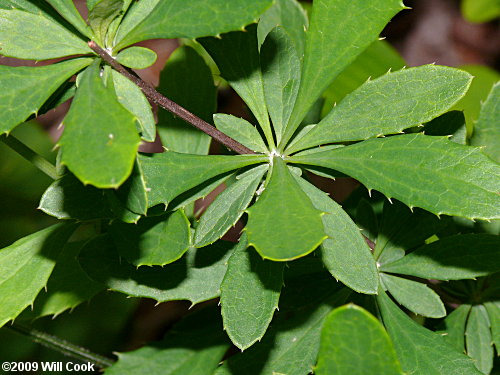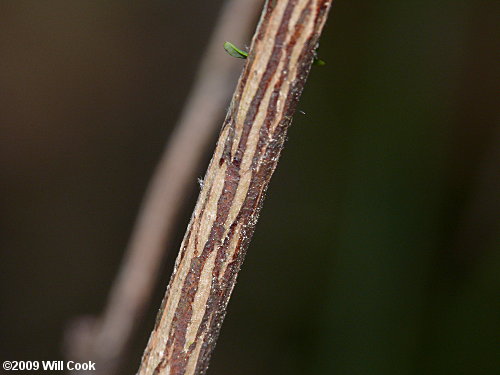
American Barberry is a small to medium-sized deciduous shrub with bristle-tipped leaves and 3-parted spines on the branches. This southern Appalachians species is not native to Canada, despite the scientific name. American Barberry usually grows in areas with basic or circumneutral soil, over limestone or mafic bedrock. In North Carolina it is rare and grows in a few counties in the Mountains and Piedmont.
Granville Co., NC 5/16/09.

The leaves are clustered at the ends of short spur branches. The leaf arrangement is alternate, though appearing whorled.
Granville Co., NC 5/16/09.

There are usually 5-9 bristly teeth on each side of a leaf. The cultivated Common Barberry (Berberis vulgaris) generally has 20-30 bristly teeth per side.
Granville Co., NC 5/16/09.

The spines, located just below the buds, are often trifurcate, branched into three parts.
Granville Co., NC 5/16/09.

Bark detail.
Granville Co., NC 5/16/09.

Low, arching growth habit.
Granville Co., NC 5/16/09.